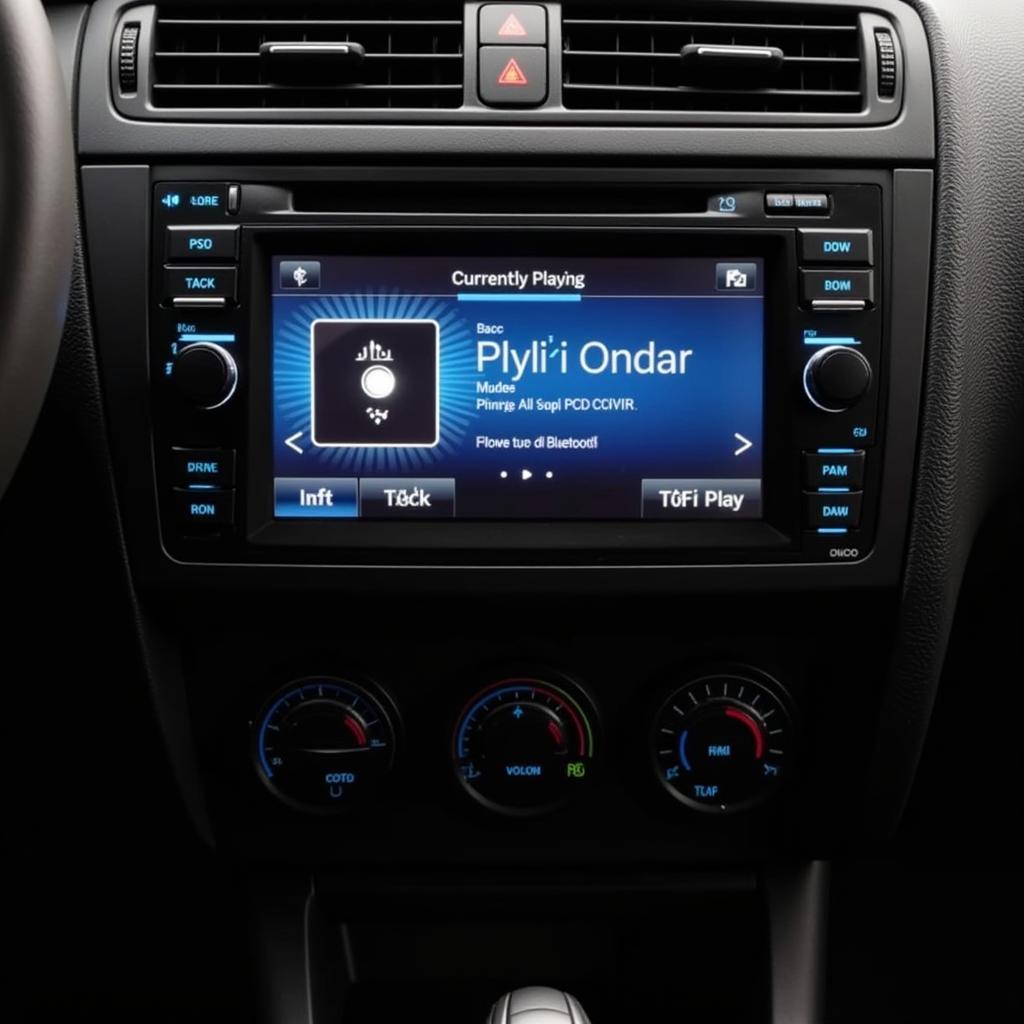A dead battery can be a real headache, leaving you stranded and frustrated. Recognizing the bad battery in car symptoms early can save you time, money, and a lot of hassle. This guide provides a comprehensive overview of those telltale signs, helping you diagnose a failing car battery before it leaves you in the lurch.
Recognizing the Signs of a Bad Battery
There are numerous indicators that your car battery is nearing its end. Some are obvious, while others are more subtle. Knowing these bad battery in car symptoms is crucial for proactive car maintenance.
-
Slow Engine Crank: One of the first and most common signs is a slow engine crank. When you turn the key, the engine struggles to turn over, making a slow groaning sound. This indicates the battery is struggling to provide enough power to start the engine.
-
Dim Headlights: If your headlights appear dimmer than usual, especially when the engine is idling, it could point to a weak battery. The battery isn’t supplying sufficient power to all electrical components.
-
Clicking Sound When Turning the Key: A rapid clicking sound when you turn the key suggests the battery doesn’t have enough power to engage the starter motor. This is a classic sign of a dead or dying battery.
-
Electrical Malfunctions: A failing battery can cause various electrical issues, such as malfunctioning power windows, interior lights, and radio. The inconsistent power supply disrupts the normal operation of these systems.
Testing and Troubleshooting Your Car Battery
If you suspect your car battery is failing, several tests can confirm your suspicions.
-
Visual Inspection: Check the battery terminals for corrosion. White, powdery build-up can hinder the flow of current. Cleaning the terminals with a wire brush and baking soda solution can sometimes resolve the issue.
-
Voltage Test: Using a multimeter, check the battery’s voltage. A fully charged battery should read around 12.6 volts. A reading below 12.4 volts indicates a low charge.
-
Load Test: A load test simulates the strain of starting the engine and provides a more accurate assessment of the battery’s health. This test is typically performed at an auto parts store or repair shop.
What Causes a Bad Car Battery?
Understanding the factors that contribute to battery failure can help you prolong its lifespan.
-
Extreme Temperatures: Both extreme heat and cold can accelerate battery degradation. High temperatures evaporate the battery fluid, while freezing temperatures can damage the internal structure.
-
Old Age: Car batteries typically last between three and five years. As a battery ages, its ability to hold a charge diminishes.
-
Parasitic Drain: Even when the car is off, certain electrical components can draw small amounts of power, slowly draining the battery. This can be caused by faulty wiring or leaving accessories plugged in.
-
Overcharging: A faulty alternator can overcharge the battery, leading to damage and premature failure.
Preventing Battery Problems
Proactive maintenance can significantly extend the life of your car battery.
-
Regularly Cleaning the Terminals: Keeping the battery terminals clean and free of corrosion ensures optimal current flow.
-
Limiting Short Trips: Short trips don’t give the alternator enough time to fully recharge the battery, leading to a gradual discharge.
-
Turning Off Accessories When the Engine is Off: Avoid leaving headlights, radio, or other accessories on when the engine isn’t running to prevent unnecessary battery drain.
-
Getting Regular Battery Checks: Having your battery tested periodically can help identify potential problems before they become major issues.
“Regular maintenance is key,” says automotive expert John Smith, ASE Certified Master Technician. “A simple battery check can save you from unexpected breakdowns and costly repairs down the road.”
 Cleaning Corroded Car Battery Terminals
Cleaning Corroded Car Battery Terminals
Bad Battery In Car Symptoms: The Bottom Line
Knowing the bad battery in car symptoms is essential for every car owner. By recognizing these signs early and taking proactive measures, you can avoid the inconvenience and frustration of a dead battery. Regular maintenance and timely replacement can keep your car running smoothly and reliably for years to come.
FAQ
-
How long do car batteries typically last? Most car batteries last between three and five years.
-
Can I jump-start a car with a completely dead battery? While you can attempt to jump-start a completely dead battery, it may not always be successful. If the battery is severely damaged, it may not hold a charge.
-
How much does a new car battery cost? The cost of a new car battery varies depending on the type and brand, but typically ranges from $50 to $200.
-
Can a bad battery cause damage to other car parts? Yes, a failing battery can put strain on the alternator and other electrical components, potentially leading to damage.
-
What should I do if my car battery keeps dying? If your car battery keeps dying, it’s essential to have it checked by a qualified mechanic to diagnose the underlying problem. It could be a faulty battery, alternator, or another electrical issue.
-
How can I tell if my car battery needs to be replaced? Several signs indicate a failing battery, such as slow engine crank, dim headlights, clicking sound when turning the key, and electrical malfunctions.
-
Is it safe to drive with a bad battery? Driving with a bad battery can be unreliable and potentially dangerous, as it can lead to unexpected breakdowns and electrical failures.



